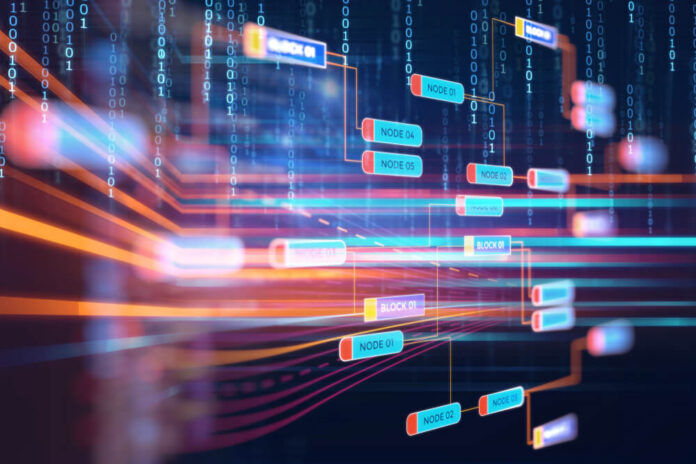AI and data are global transformers, reshaping industries and societies. It has positioned AI and data in UAE as the world leader in driving innovation and economic development through these technologies. With the commitment to becoming a global leader in AI and data-driven innovations, the UAE has strategically initiated plans to harness its full potential.
Role of AI and Data in UAE Vision
All strategic initiatives of the UAE, including the National AI Strategy 2031, reflect its commitment to becoming a global leader in AI and data innovation. As it integrates AI into all sectors, it improves government services and increases economic revenues. Another activity of the government is training AI to government officials as well as organizing student AI camps and bringing up a school for AI. Besides, the UAE is into AI-driven initiatives for projects and start-ups developing from this conducive environment for such technology development.
Key Areas of Transformation
AI and data are impacting several key sectors in the UAE:
-
Smart Cities
AI occupies the backbone in constructing the smart city, creating new solutions and pathways for better living standards and well-being of the city. Bringing AI into everything creates optimized resource management such as energy handling and waste disposal, with reduced environmental footprints from this global process.
AI is further improving the quality of life through ease in traffic flow by past data analysis, real-time analysis, and optimization of traffic lights and routes that ensure reduced congestion and improvement in public transport. AI also gives more personalized citizen services, such as predictive maintenance for infrastructures, smart grids for energy distribution, and personalized citizen services, translating urban life to efficiency and sustainability.
-
Health care
AI-based technologies are fundamentally changing the healthcare industry by providing more accurate diagnostics and tailored therapies. AI-enabled diagnostic modalities will rapidly analyze medical images and patient data and allow the early recognition of conditions for better patient care. Using machine learning algorithms, doctors will tailor treatments to individual patients according to their genetic composition and health history analysis.
AI maintains patient scheduling and reduces wait hours for patients, allowing a more effective healthcare facility when combined with other administrative works. Drug discovery and clinical research will also profit from AI, which speeds up therapy development.
-
Defense and Security
All in all, the UAE is using this artificial intelligence elsewhere as well to augment its capacity in defence and security. AI allows surveillance to scale up for real-time management of extensive areas, identifying possible threats, and abnormally different things with higher speed and accuracy. For threat detection, an AI system learns behaviors, which in turn predicts and preempts any security risks.
In addition to that, cybersecurity relies heavily on AI, because it allows such algorithms to detect the vulnerabilities, respond in real-time to breaches, and even anticipate the next cyber threat. From the national security perspective, they form defense strategies for safety over the critical infrastructure.
-
Education
AI is indeed transforming the educational sector into a more effectively personalized learning process. Learning platforms powered by AI can create ways using such resources wherein specific tailored feedback can be channeled for every student according to their pace and learning styles. Such tools allow students to focus on areas in which they need improvement, while advanced learners move ahead with their speed. AI automates much of the administrative side, from grading to scheduling, thus freeing educators to teach more. This includes making the delivery of content better by having interactive tools, such as virtual tutors, intelligent study assistants, and immersive environments, making education more entering and accessible.
Opportunities and Challenges
The convergence of AI and data also offers enormous opportunities for economic growth and innovation, especially in the UAE. These technologies can drive efficiency, open up new business models, and improve competitiveness. Challenges exist, however, in areas such as ethics, data privacy, and developing a truly robust regulatory framework. It is imperative to ensure the responsible deployment of AI as well as public trust to achieve sustainable development with it.
Expert Insights
The AI scene in the United Arab Emirates keeps on changing according to the company Vasudha Khandeparkar, Lead for AI, Analytics and Data Practice at Grant Thornton UAE.
She has combined a strong commitment in using data for decision-making organizations as well as adapting to the needs in a rapidly evolving regulatory environment within businesses. The flexible data regulations born out of the UAE allow organizations to experiment and innovate and thus position the nation as a leader in AI adoption.
Conclusion
Transforming the fabric of life in the UAE today through futuristic technologies, innovations, and lifestyle improvements will be through AI and big data. The investment strategy and initiatives in these areas indicate a lot of ambitions on the part of the nation to be recognized as the world’s preeminent hub for AI and data-driven technologies. Businesses should now be scouting the ecosystem that positions them best and most competitively compared to others in a fast-emerging AI-driven UAE.

